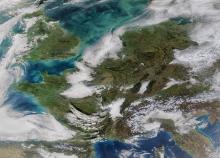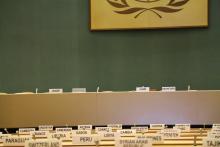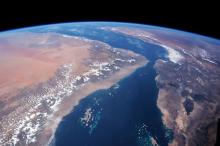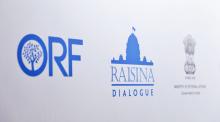Communities need to adapt to the havoc wrought by this weather phenomenon.
Some scientists suspect that atmospheric rivers, plumes of water vapor that transport water from the poles and dump heavy rain or snow when they hit land, caused the 'Great Flood' in 1862. These rivers in the sky have become increasingly powerful in the decades since, pummeling California and the western United States the past few winters. They will likely grow even more severe in a warming world. Western states need to prepare accordingly.











